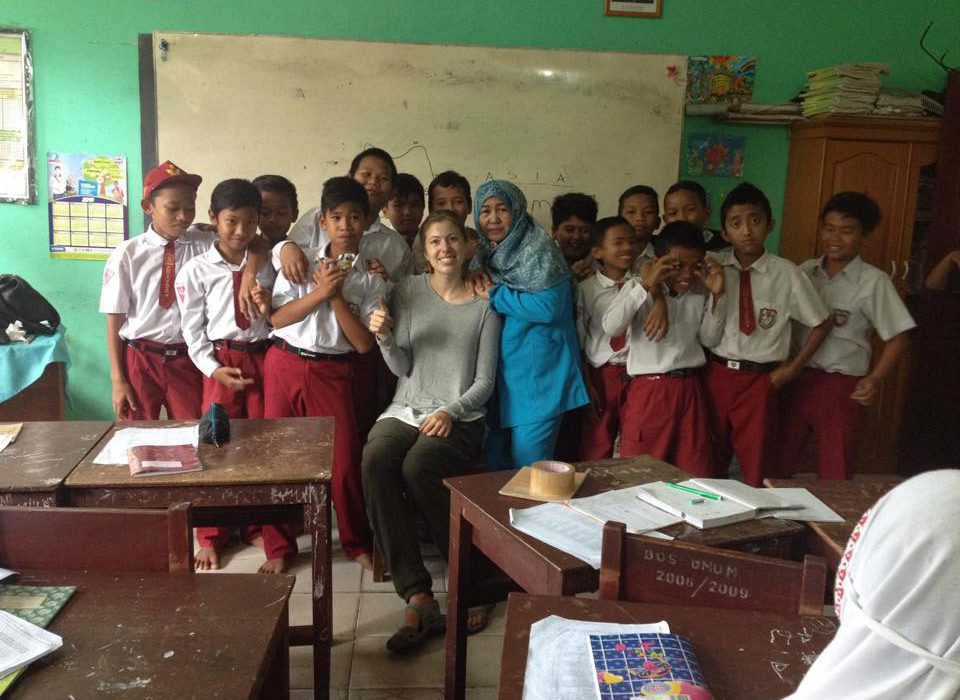Reflection on Language Learning: An Inadvertent Love Letter to Indonesia
I’ve been asked to write this month about learning bahasa. My first thought was, ‘oh dear’. For the last eight months I haven’t been in the language-learning mindset of writing out sentences, memorising vocabulary and substituting in grammar structures. I’ve been ‘immersing’ in Indonesia instead – and naturally, I’m sure, my bahasa has developed.
The path ahead learning bahasa for me is definitely a long tunnel though. That’s why it’s good to enjoy the ride. Stepping into the street or making friends in my classes when I first arrived in Jogja for my study abroad semester, there was a motion to bahasa that hadn’t been there in the textbook approach. Gradually, the words people spoke morphed into form in my ears and I could uphold a conversation without asking, “maaf, tolong ulangi” (please can you repeat that) too often.
I started to enjoy sinking into the flow of conversation and repeating back sharp and energetic sounds similar to the ones I was hearing. The big surprise I had heard time and time again in my Indonesian classes at Melbourne university but had not realised for myself until study abroad, was how dynamic and ever-changing bahasa Indonesia is. Particularly, bahasa gaul (the colloquial register). At this stage in my bahasa, this is why the tunnel ahead is long – inadvertently, by wanting to be in and honour Indonesia’s cultures and people.
One of the lovely things to come from facing challenges with speaking is the empathy it you develop for foreigners in Australia learning English. It really is humbling – and I am personally grateful to each person who has listened and wanted to have a chat, not fixating on the form of my words.
After the experience of AIYEP, just recently, my love and adoration for Indonesia has expanded in all directions. Language was the seed – and it is the present path. It is the way we are eventually able to relate to and form friendships. And a way we can be curious and take an interest in a truly beautiful place. For me, it tends to be something to flow with and enjoy. Yet, language learning is also a special way to give back to a place generous to the core that welcomes humanity with open arms.
I don’t know how this got soppy. Learning bahasa itself has been a lot of fun. There have been funny moments. The time in year 12 I asked when we were going to die (meninggal) instead of leave (meninggalkan). The time I walked up to the counter in a printing shop, only to have the guy on the other side explode into fits of laughter. The multiple times someone has done a double take when I open my mouth and bahasa (in my individual tongue) comes out. Situations I know other bahasa-learners also experience. And that I know will (and am bemused to have) continue unfolding as I keep along a path of discovering Indonesia.


